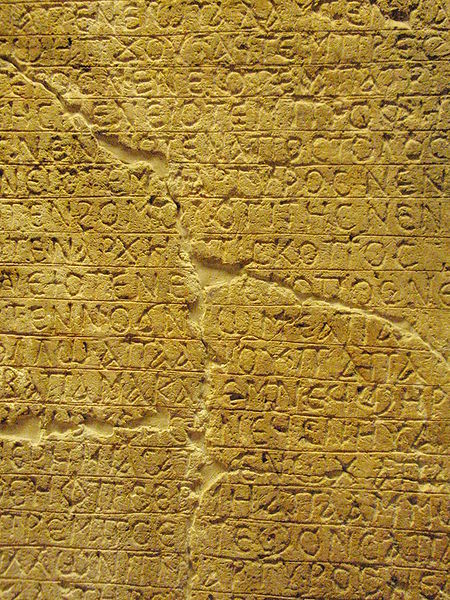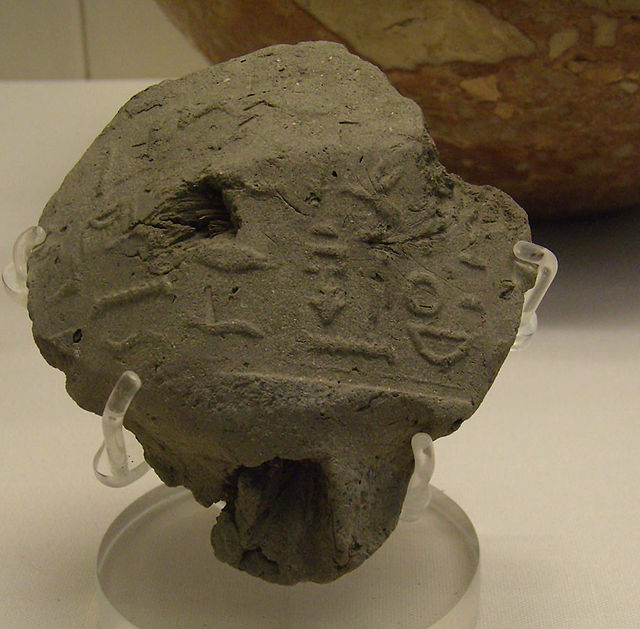Coptic is a group of closely related Egyptian dialects, representing the most recent developments of the Egyptian language, and historically spoken by the Copts, starting from the third century AD in Roman Egypt. Coptic was supplanted by Arabic as the primary spoken language of Egypt following the Arab conquest of Egypt and was slowly replaced over the centuries. Coptic has no native speakers today, although it remains in daily use as the liturgical language of the Coptic Orthodox Church and of the Coptic Catholic Church. Innovations in grammar and phonology and the influx of Greek loanwords distinguish Coptic from earlier periods of the Egyptian language. It is written with the Coptic alphabet, a modified form of the Greek alphabet with several additional letters borrowed from the Demotic Egyptian script.
Fifth–sixth century Coptic liturgic inscription from Upper Egypt.
Papyrus Bodmer VI ("Dialect P") possesses the richest of all Coptic alphabets, with 35 unique graphemes.
Sandstone stela, inscribed with Coptic text. The names Phoibammon and Abraham appear. From Egypt, find spot unknown, date known. The British Museum, London
Coptic and Arabic inscriptions in an Old Cairo church
The Egyptian language or Ancient Egyptian is an extinct branch of the Afro-Asiatic languages that was spoken in ancient Egypt. It is known today from a large corpus of surviving texts, which were made accessible to the modern world following the decipherment of the ancient Egyptian scripts in the early 19th century. Egyptian is one of the earliest known written languages, first recorded in the hieroglyphic script in the late 4th millennium BC. It is also the longest-attested human language, with a written record spanning over 4,000 years. Its classical form is known as "Middle Egyptian." This was the vernacular of the Middle Kingdom of Egypt, and it remained the literary language of Egypt until the Roman period. By the time of classical antiquity, the spoken language had evolved into Demotic, and by the Roman era it had diversified into the Coptic dialects. These were eventually supplanted by Arabic after the Muslim conquest of Egypt, although Bohairic Coptic remains in use as the liturgical language of the Coptic Church.

Ebers Papyrus detailing treatment of asthma
Seal impression from the tomb of Seth-Peribsen, containing the oldest known complete sentence in Egyptian
10th century stela with Coptic inscription, in the Louvre







